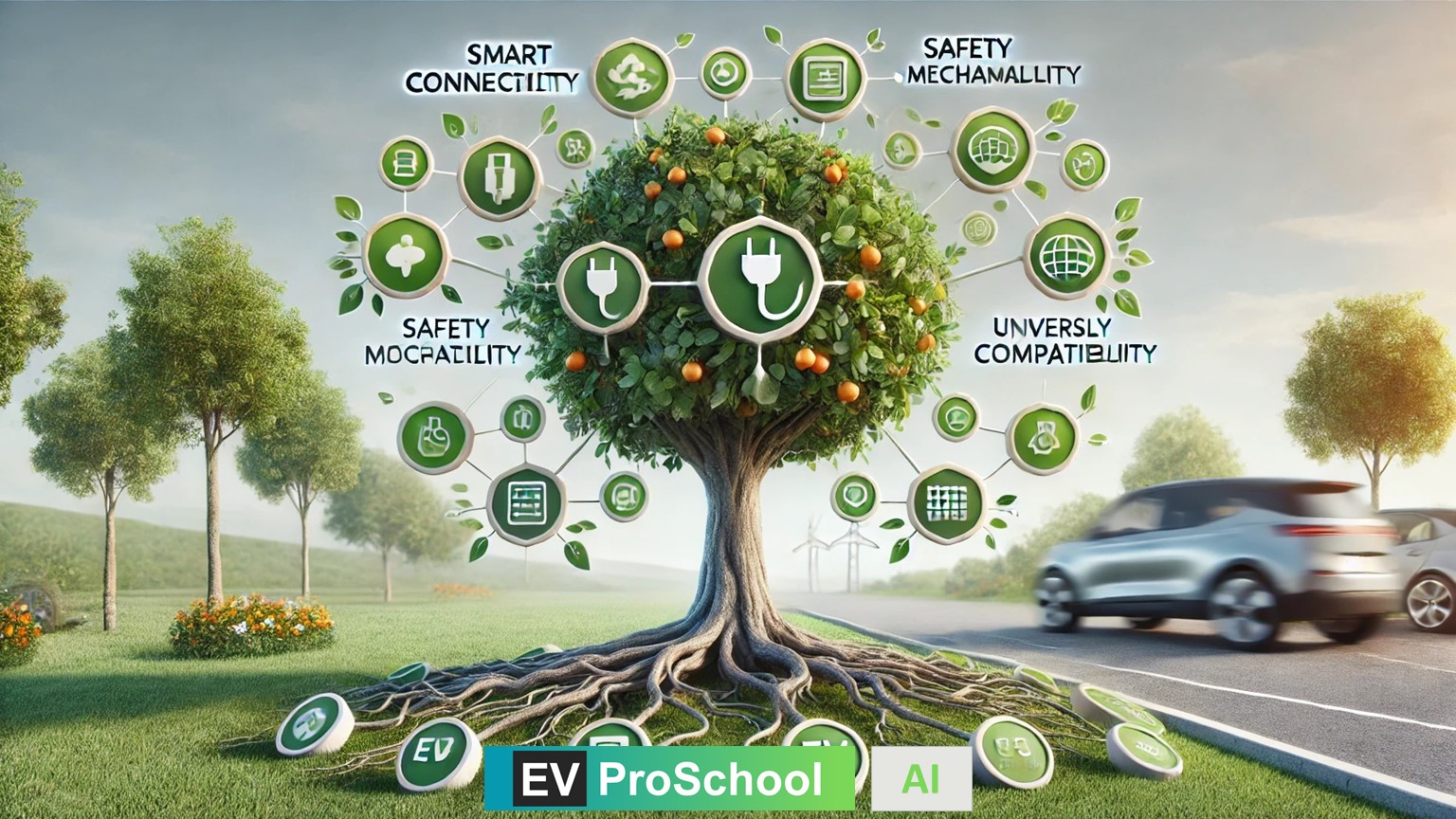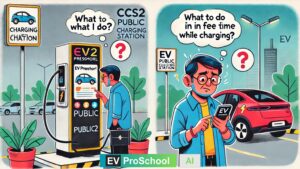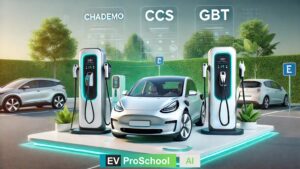As electric vehicles (EVs) become a mainstay of modern transportation, the reliability of EV charging systems has become more critical than ever. A robust EV charging system not only supports the growing number of EVs on the road but also ensures a seamless and stress-free experience for users. Let’s explore the top five features that make EV charging systems robust and dependableWhy Robust Charging Systems Matter
A robust EV charging system ensures efficiency, safety, and accessibility for EV owners, reducing range anxiety and enabling wider adoption of clean mobility solutions. It’s the backbone of the EV revolution, supporting sustainability goals worldwide.
1. Smart Connectivity
Smart EV chargers are equipped with advanced connectivity features like Wi-Fi, Bluetooth, or 4G. These enable real-time monitoring, software updates, and seamless integration with energy management systems.
Why It’s Important:
- Remote Access: EV owners can monitor and control charging via mobile apps.
- Load Management: Chargers can adjust power delivery during peak hours to optimize grid performance.
Example: Many chargers, such as Tesla’s Wall Connector, allow scheduling to take advantage of off-peak electricity rates.
2. Safety Mechanisms
A robust charging system prioritizes safety with features like ground fault protection, overvoltage protection, and temperature sensors.
Why It’s Important:
- Prevents Hazards: Protects against electrical shocks or overheating.
- Ensures Longevity: Safeguards both the EV battery and the charging station.
Example: Most Level 2 home chargers include built-in circuit breakers to cut power during abnormal conditions.
3. Durable and Weather-Resistant Design
Charging stations often face extreme weather conditions. Robust systems are built with weatherproof and tamper-resistant materials to ensure uninterrupted performance.
Why It’s Important:
- Outdoor Reliability: Enables operation in rain, snow, or heat.
- Longer Lifespan: Resistant to wear and tear over time.
Example: IP65-rated chargers are widely used for outdoor installations, offering protection against water and dust.
4. Universal Compatibility
A robust charging system supports a wide range of EVs and complies with universal standards like CCS (Combined Charging System), CHAdeMO, or Type 2 connectors.
Why It’s Important:
- Convenience: Ensures compatibility with various EV brands.
- Global Adoption: Enables standardization across different regions.
Example: Public charging networks like ChargePoint and Electrify America provide multi-standard connectors to accommodate all EV models.
5. Scalability and Future-Proofing
The ability to scale up to meet increasing demand and adapt to evolving technologies is a hallmark of a robust system.
Why It’s Important:
- Accommodates Growth: Expands capacity as EV adoption rises.
- Future-Ready: Compatible with innovations like Vehicle-to-Grid (V2G) technology or ultra-fast charging.
Example: High-power DC fast chargers, such as those with 350 kW capacity, are being installed to support future EVs with larger batteries.
What It Means for EV Owners
These features not only ensure the reliability of EV charging infrastructure but also enhance user confidence and satisfaction. As EV adoption grows, the emphasis on robust charging systems will continue to shape the future of clean mobility.
Key Takeaway:
From smart connectivity to future-proof scalability, robust EV charging systems ensure safety, reliability, and efficiency, making EV ownership a convenient and eco-friendly choice.



